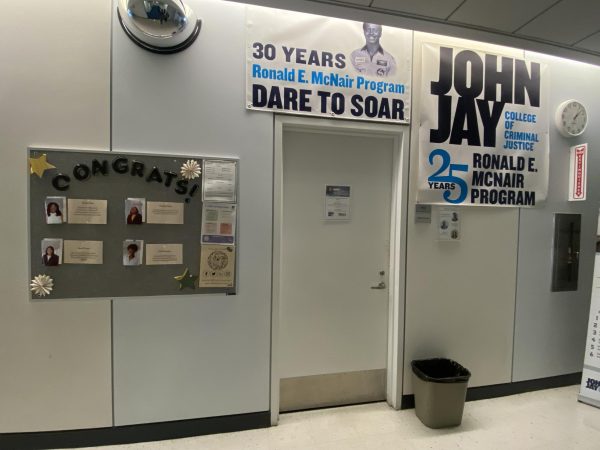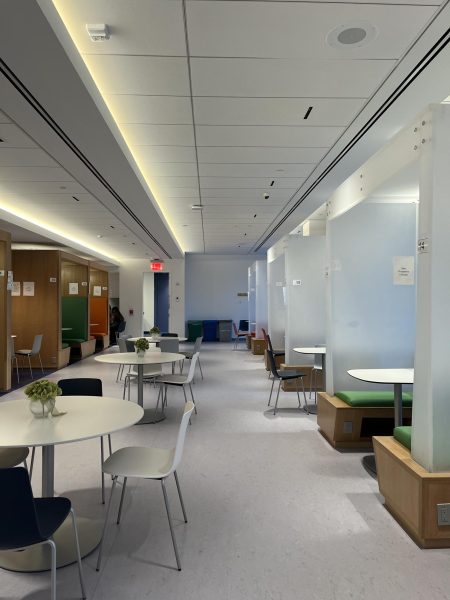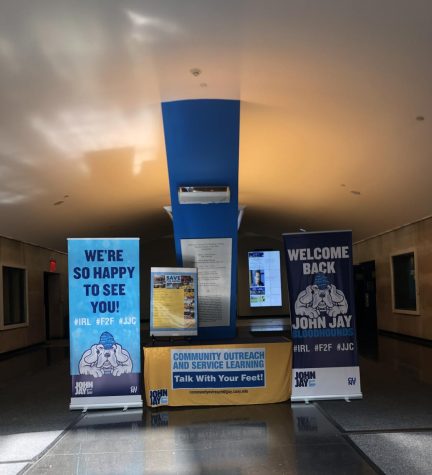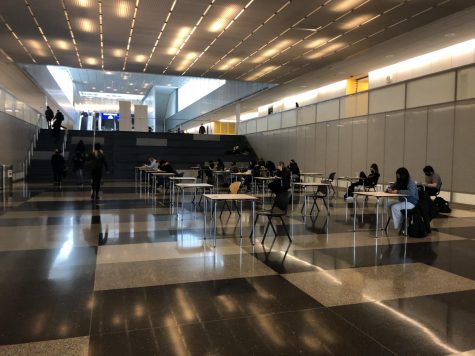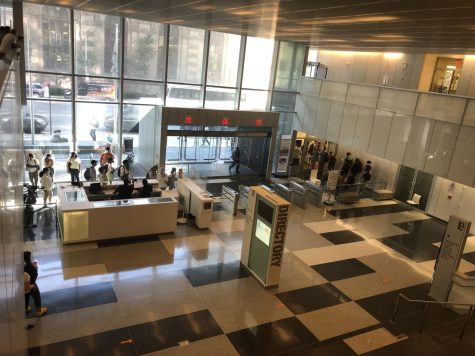CUNY’s Random Testing Program Causes Concerns for Some Students
Jules Kroll Atrium, New Building.
On November 15, CUNY launched a random testing program for vaccinated students and faculty. The program complements the mandatory weekly testing for students and faculty with undisclosed vaccination status or an exemption.
Weekly, 10% of randomly selected, vaccinated individuals across each University are contacted to be tested for COVID-19. Each selected individual receives an email from [email protected]. The notified students and faculty must get tested within seven days at one of CUNY’s testing sites. The test results take around 48-hours, but individuals awaiting their results maintain access to campus. Testing positive temporarily restricts the student or faculty members access to campus, and failing to get tested within the seven days may also result in a campus restriction.
According to John Jay’s Chief Operating Officer, Mark Flower, the initial failure to comply with the seven-day deadline will result in an individual being re-entered into the testing pool. However, the goal is to restrict access to campus for anyone who fails to get tested before the deadline. To regain access to campus, students and faculty must reapply on CUNYfirst.
While the random testing program is part of CUNY’s multi-pronged effort to mitigate the spread of the virus on its campuses, the program hasn’t come without concerns. Some sense a lack of communication like with the vaccine mandates at the beginning of the semester. Others sense difficulty with the program relying on email notifications and causing inconveniences for students.
“I foresee problems in the near future, or the beginning of the spring semester,” Flower said.
Flower also emphasized that students must check their emails since it is the only way the program will notify students that they must get tested.
According to Flower, another concern was that vaccinated students weren’t originally part of the testing system, which may cause some to gloss over the emails or ignore them entirely.
Though the program has already begun, the bulk of students have not entered the testing pool. Since the fall semester is nearing its end, few students will have entered the testing program by the semesters end. So the testing program ostensibly goes into effect for most students this spring.
Kimberly Paredes, a John Jay senior, said her main concern with the policy was communication. Paredes, who currently attends campus twice a week, was initially unaware of the testing program and said many students do not regularly check their emails. She added that some students were still upset with the vaccine mandate, and continued to not comply with the on-campus mask mandate.
“I just hope John Jay does a better job at communicating,” she said. “And we’re not going to have the same issues at the beginning of the semester where a lot of people thought they could sign-in for in-person classes without having a vaccine.”
Many students returned to campus unvaccinated at the beginning of the fall semester despite CUNY’s vaccine mandate, which was initially announced in June. Originally, students could bypass the vaccine by testing weekly.
However, CUNY only offered the option until October 7, when students were required to upload their vaccination proofs. In addition, CUNY hounded student email accounts about the need to get vaccinated to remain in on-campus courses. But some failed to comply.
Sara Elshaer, a John Jay junior, had concerns about the new testing program beyond communication. Elshaer said that being selected might interfere with students’ schedules and cause additional inconvenience.
Many students across CUNY work part-time or full-time jobs while attending CUNY as full-time students. Most CUNY students also commute daily to campus, and Elshaer said many students disagree with the policy.
However, she said the policy keeps people safe and that people should regularly get tested. She added that she periodically gets tested herself. But Elshaer questioned the need for the program when the vaccine mandate is already in place.
“If randomly selected students were going to get tested once a week, then I don’t see the point of the vaccine,” she said.
But while she had concerns about the policy, she was not a far cry from CUNY concerning the random testing program. Elshaer said she agreed with the random testing program, and it would be unlikely for students to be selected twice, which could mitigate some of the concerns around the policy.
Natasha Santana, a John Jay sophomore, said she understands the urgency to return to normalcy after not properly transitioning from high school to college. She said she did not really understand what college was about until indulging in every opportunity on campus.
“I understand the need for there to be a sense of safety,” she said via email. “I would do anything to stay on campus and keep my friends around even if it meant there was a stick in my nose.”

James Van Bramer is a senior majoring in Political Science and minoring in Digital Media & Journalism. Van Bramer spends his time hosting the virtual...

Tzvia Waronker is the Web Editor for The John Jay Sentinel. She is a junior majoring in Forensic Psychology and minoring in Digital Media & Journalism...





